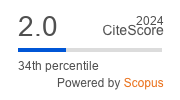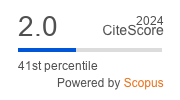| 2/2004 - 5 |
Knowledge Based Transcription of Handwritten PitmanÔŅĹs Shorthand Using Word Frequency and ContextSwe MYO HTWE, Colin HIGGINS, Graham LEEDHAM, Ma YANG |
| Extra paper information in |
| Click to see author's profile in |
| Not available online | Views: 1,551 |
Author keywords
Pitman shorthand, unigram approach, shorthand lexicon, most frequently used words
References keywords
References keywords will be displayed on the next page reload.
About this article
Date of Publication: 2004-04-02
Volume 4, Issue 2, Year 2004, On page(s): 26 - 30
ISSN: 1582-7445, e-ISSN: 1844-7600
Digital Object Identifier: Not assigned
Abstract
The paper proposes the computer transcription of handwritten Pitman shorthand as a mean of rapid text entry to handheld devices. Handwritten outlines are bound to be variation from writers to writers and it causes pattern recognition to be prone to errors, however these imperfections can be restored by the use of heuristic approach in the interpretation stage. The transcription accuracy can be improved by the combination of three factors: firstly, incorporating contextual knowledge as used by human readers; secondly, applying knowledge of the most frequent words of Pitman shorthand; and finally, adding knowledge of collocation. Statistical analysis of a Shorthand lexicon is presented and distribution of transcription accuracy based on accuracy of segmentation is discussed in the paper. Experiments using a phonetic Lexicon with 5000 entries show that the approach is efficient and produces a satisfactory transcription accuracy of 94%. |
| References | | | Cited By |
On-line references are not available - see the PDF file if available.
Faculty of Electrical Engineering and Computer Science
Stefan cel Mare University of Suceava, Romania
All rights reserved: Advances in Electrical and Computer Engineering is a registered trademark of the Stefan cel Mare University of Suceava. No part of this publication may be reproduced, stored in a retrieval system, photocopied, recorded or archived, without the written permission from the Editor. When authors submit their papers for publication, they agree that the copyright for their article be transferred to the Faculty of Electrical Engineering and Computer Science, Stefan cel Mare University of Suceava, Romania, if and only if the articles are accepted for publication. The copyright covers the exclusive rights to reproduce and distribute the article, including reprints and translations.
Permission for other use: The copyright owner's consent does not extend to copying for general distribution, for promotion, for creating new works, or for resale. Specific written permission must be obtained from the Editor for such copying. Direct linking to files hosted on this website is strictly prohibited.
Disclaimer: Whilst every effort is made by the publishers and editorial board to see that no inaccurate or misleading data, opinions or statements appear in this journal, they wish to make it clear that all information and opinions formulated in the articles, as well as linguistic accuracy, are the sole responsibility of the author.



